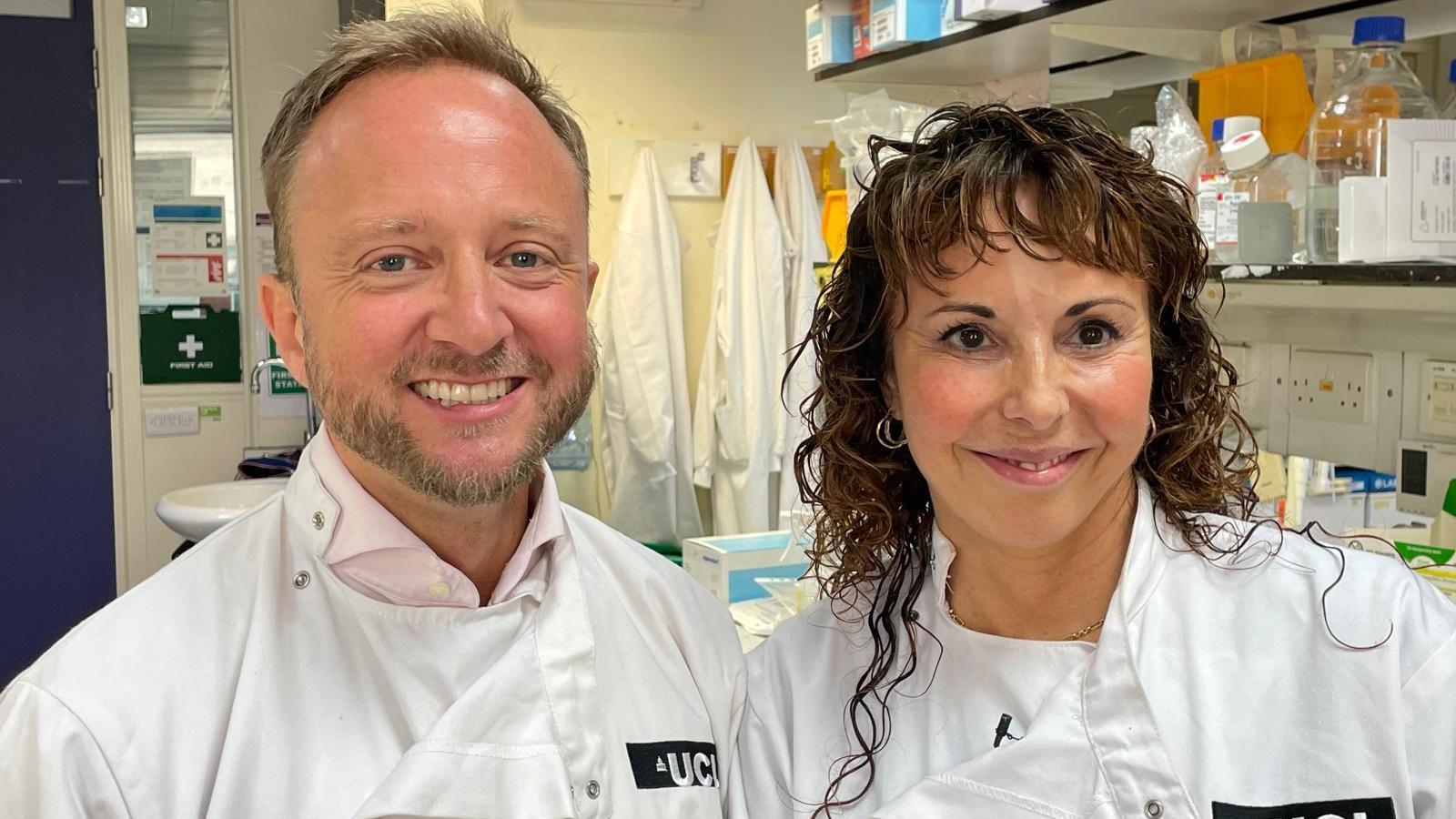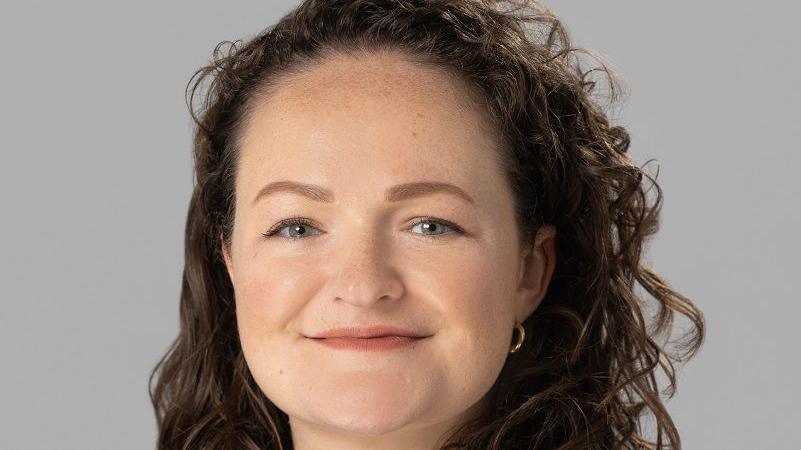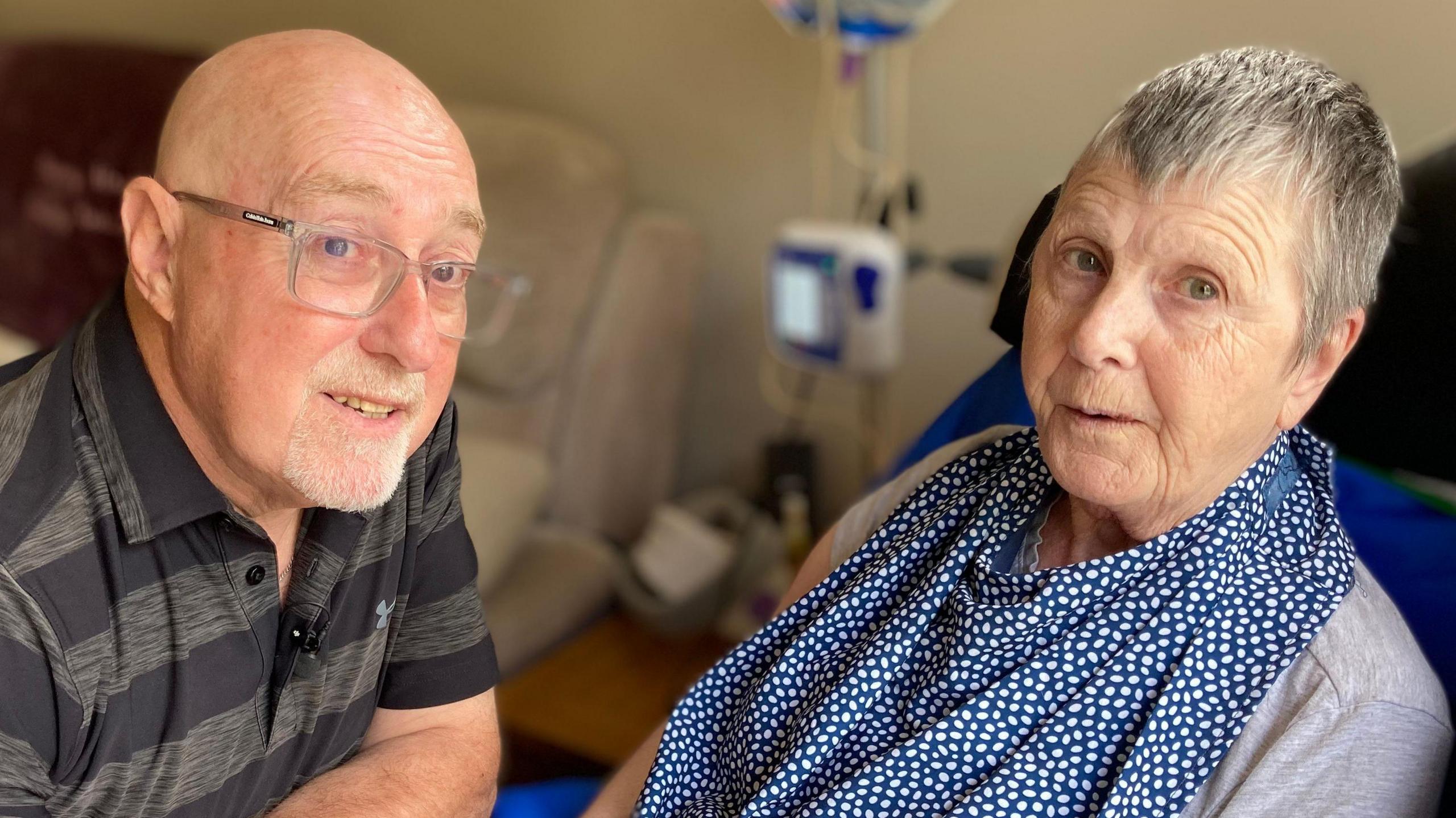Olympian calls Huntington's treatment 'incredible'

Sarah Winckless found out that she carries the altered gene
- Published
An Olympic medallist who lost her mum to Huntington's disease has described a successful treatment for the disease as a real breakthrough.
Team GB rowing champion Sarah Winckless, from Henley, was speaking after it was revealed a new gene therapy can slow the progression of the disease by 75%.
Huntington's runs through families, relentlessly kills brain cells and resembles a combination of dementia, Parkinson's and motor neurone disease.
She found out that she carries the gene and described the news about the treatment as "absolutely incredible".
Winckless, who won bronze in the women's double sculls at the 2004 Athens Games, said her mother was 40 when she "became ill and began to change in mood, memory and movement".
"We lost her in 2019 after her being in a wheelchair for the last seven years of her life, so it's a really devastating disease," she said.
If one of your parents carries the altered gene then there is a 50% chance that you will inherit Huntington's disease.
The new treatment is a type of gene therapy given during 12 to 18 hours of delicate brain surgery.
"The real hope for people like myself is that within five years, we're going to have a number of options for people with Huntington's that will either stop or slow the progression of the disease," Winckless said.
She told BBC Radio Berkshire continued support and investment was needed for charities which support people in order to make the new treatment available to those who need it.
Get in touch
Do you have a story BBC Berkshire should cover?
You can follow BBC Berkshire on Facebook, external, X, external, or Instagram, external.
Related topics
- Published24 September

- Published25 September

- Published3 June
